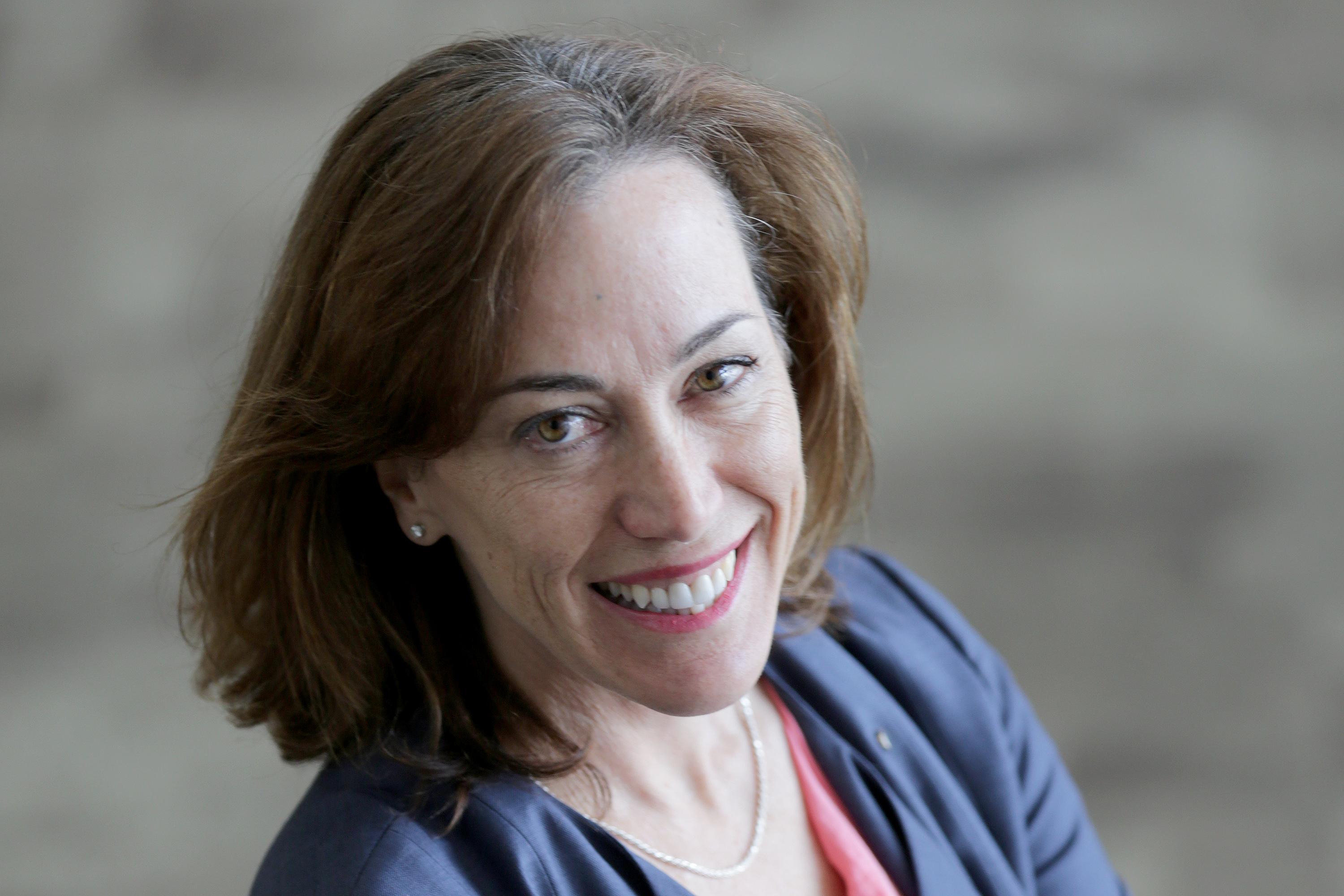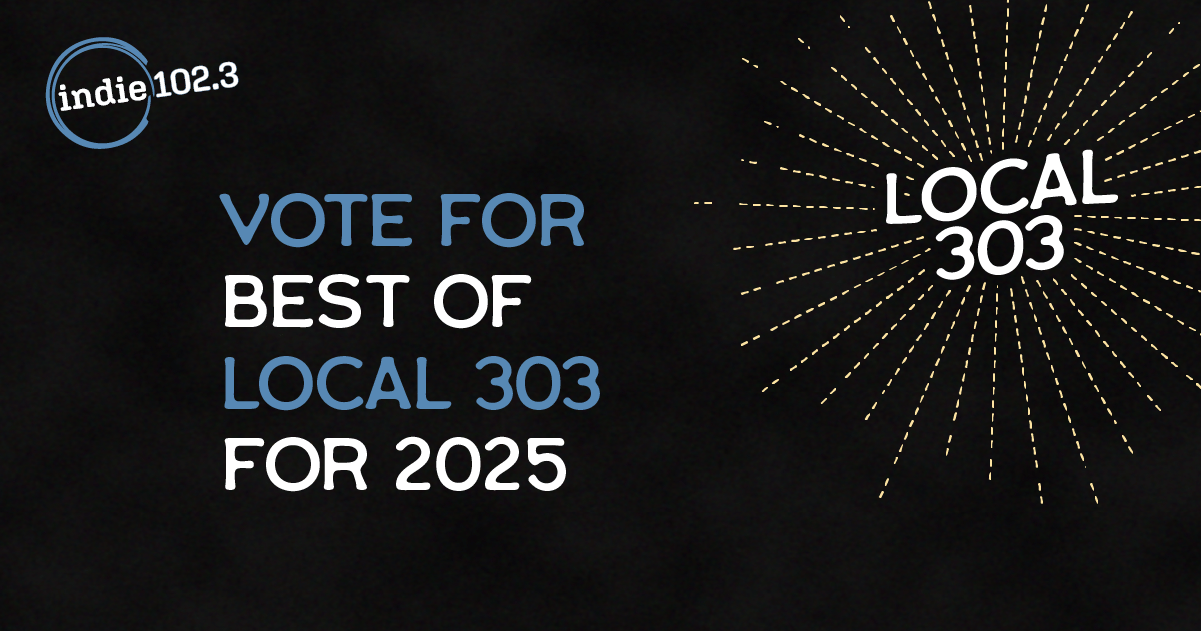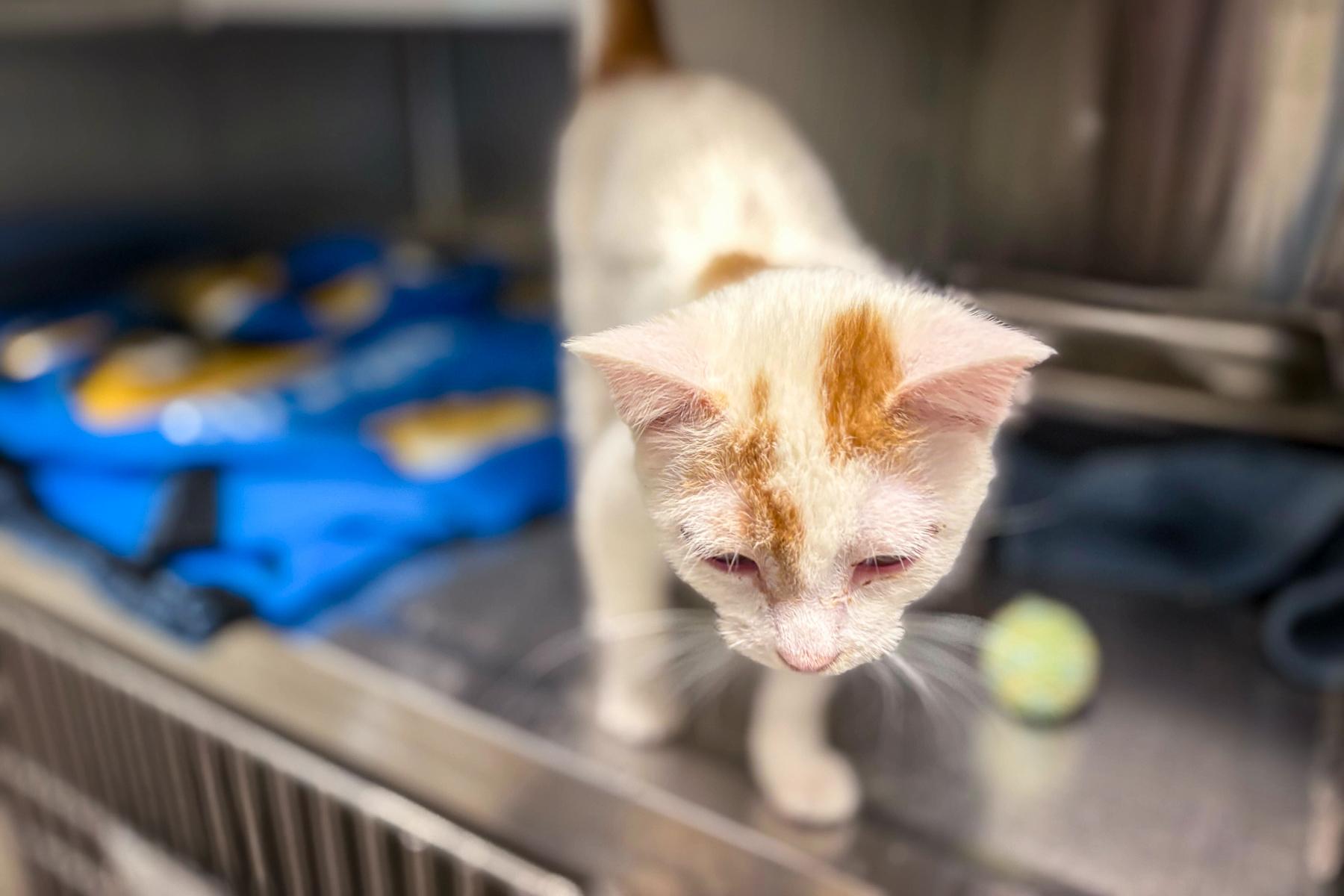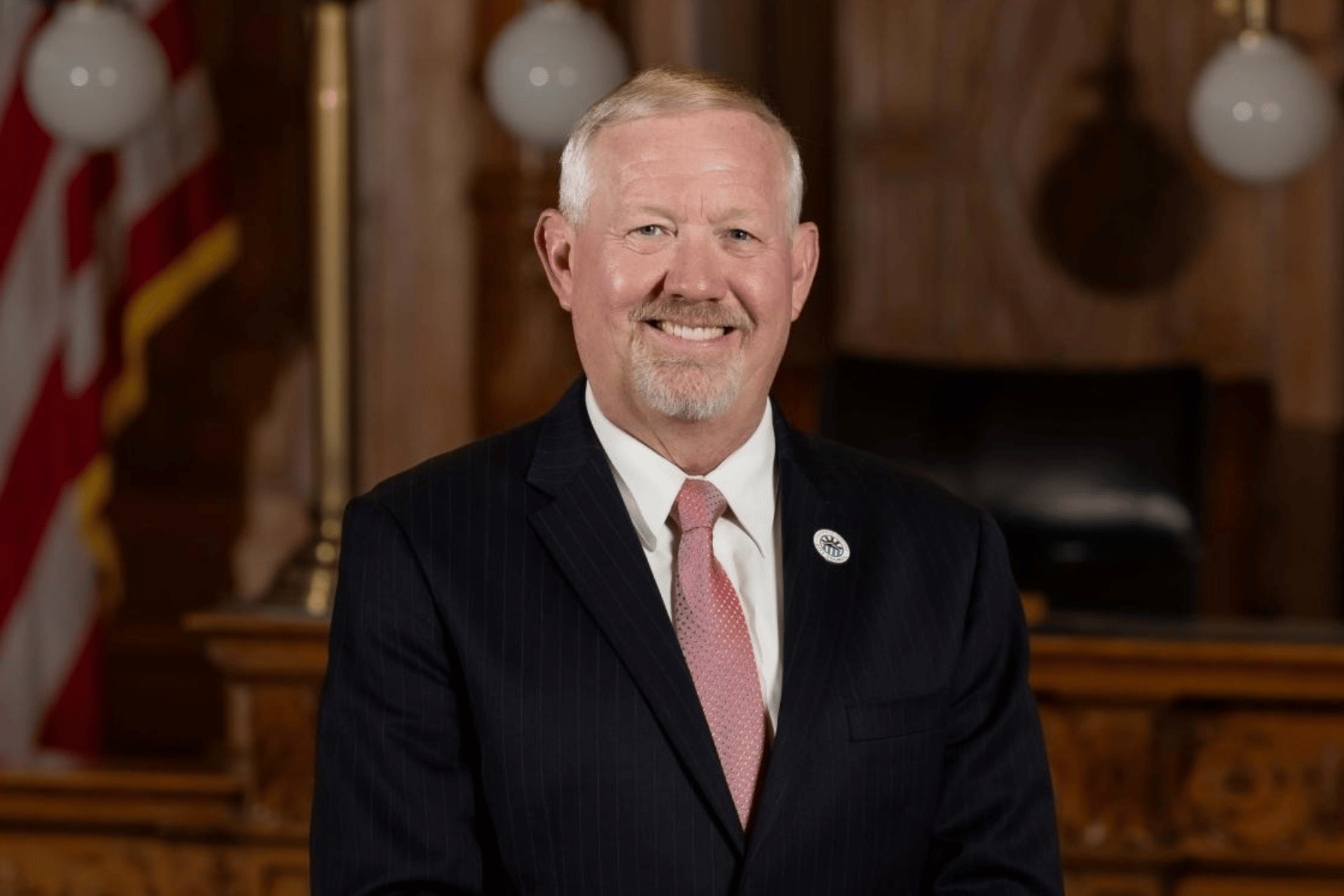
Updated with transcript — Metropolitan State University of Denver has become a haven for traditionally under-represented students, even going so far as to buck the state legislature and attorney general's office to admit them. That mission is once again coming under fire as it pertains to immigration policy, and has created an issue for new president Janine Davidson.

A former undersecretary of the United States Navy, Davidson succeeded Stephen Jordan as president of Metro State in July. She spoke with Colorado Matters host Ryan Warner about how the controversy over Deferred Action for Childhood Arrivals (DACA) is affecting students at her school. DACA allows the children of undocumented immigrants to remain in the country, giving them a path to attend college. Ten states have set a Sept. 5th deadline for President Donald Trump, saying they'll sue the federal government if he does not dissolve the DACA program.
Davidson said Metro State has more than 300 DACA students; 40 percent of its population is students of color. Here are edited highlights from the conversation. A transcript is below.
Interview Highlights With Janine Davidson
On MSU Denver's position on undocumented immigrant students:
The previous president, Stephen Jordan, along with our board were incredibly progressive and bold in ensuring that they could protect these students. And like I said I mean for many of us it is sort of, it is a moral and an ethical, it's the right thing to do. These students came here as kids through no fault of their own whatever their status was. If you talk to them it is amazingly inspiring. I mean they grew up, they, you know, right alongside playing soccer, going to school with all their other American kids and then somewhere along the line somebody said oh and by the way you can't do all the same things. You can't get a Social Security number. You can't get a job. You can't pay in-state tuition. And now what are we going to do. So I think it's important that we that we honor these kids that are trying to make it in our country and be productive members of our society.
On critics who don't believe these students should get an education:
I hear that argument a lot but I just I just don't think that it that it reflects enough compassion for the plight of these students. It's not their fault. This is where they are, on the one hand. On the other hand you know also I mean there is, success speaks for themselves in being you know giving them a chance at education, giving them a path to citizenship. It's not, not only does it help them and their families and their future. It helps Colorado, it helps the nation. And so you know there are some people that are never going to agree. And that's just where we are.
What concerns her most about the White House statements:
MSU Denver is 100 percent committed to these Dreamer students. We have close to 300 of them. And just the discussion that's been happening nationally has generated so much anxiety among this population. And so as a university president, and I'm very concerned about that, we are trying to make sure that we have the wraparound services that we need for these students, if they come in for counseling, if they want to talk. And that's already happening on campus so we are we're sort of braced for whatever decision might come down. But we're already being affected just by the conversation.
Read the transcript:
Ryan Warner: This is Colorado Matters from CPR News I'm Ryan Warner. There's a deadline in Washington D.C. next week that could dramatically change the lives of some young people. Many are students at Metropolitan State University of Denver. You see, ten states are threatening to sue the federal government if President Trump doesn't eliminate an Obama era immigration policy. This policy allows people brought illegally to the United States as children to stay in the country and Metro State in Denver has hundreds of these DACA students. The school's new president Janine Davidson joins me. She was formerly Undersecretary of the Navy. And welcome to the program. Janine Davidson: Thank you Ryan it's great to be here. RW: So the deadline that we referred to is next Tuesday, September 5th. The Trump Administration is reportedly asking the state attorneys general for a bit more time but what concerns you most about the looming deadline and its potential impact on these DACA students at Metro. JD: Sure well first of all I think it's moderately encouraging that he's taking a little time to think about this. RW: You're saying that the administration. JD: The president, that's right. But let's be clear. MSU Denver is 100 percent committed to these Dreamer students. We have close to 300 of them. And just the discussion that's been happening nationally has generated so much anxiety among this population. And so as a university president, and I'm very concerned about that, we are trying to make sure that we have the wraparound services that we need for these students, if they come in for counseling, if they want to talk. And that's already happening on campus so we are we're sort of braced for whatever decision might come down. But we're already being affected just by the conversation. RW: That is to say the psychology of these students. Why are you 100 percent committed to them. Help me understand your thinking here. JD: Well I mean I think that you know the leadership that MSU Denver and Colorado displayed in making sure that these students have a chance in our system was incredibly progressive and was the right move. I mean I think morally and ethically it's the right thing to do to support these students. RW: Let me say that before the creation of DACA Metro State was quite proactive in allowing undocumented students to attend the university, even creating special tuition rates despite objections from the state legislature and then Attorney General John Suthers. JD: That's correct. The previous president, Stephen Jordan, along with our board were incredibly progressive and bold in ensuring that they could protect these students. And like I said I mean for many of us it is sort of, it is a moral and an ethical, it's the right thing to do. These students came here as kids through no fault of their own whatever their status was. If you talk to them it is amazingly inspiring. I mean they grew up, they, you know, right alongside playing soccer, going to school with all their other American kids and then somewhere along the line somebody said oh and by the way you can't do all the same things. You can't get a Social Security number. You can't get a job. You can't pay in-state tuition. And now what are we going to do. So I think it's important that we that we honor these kids that are trying to make it in our country and be productive members of our society. RW: Trying to seek an education at MSU Denver. How would you respond to people who think it's wrong for a college or university to offer an education to people who are not legally in the country and that doing so is something of a magnet or an encouragement to illegal immigration. JD: Well I mean I hear that argument a lot but I just I just don't think that it that it reflects enough compassion for the plight of these students. It's not their fault. This is where they are, on the one hand. On the other hand you know also I mean there is, success speaks for themselves in being you know giving them a chance at education, giving them a path to citizenship. It's not, not only does it help them and their families and their future. It helps Colorado, it helps the nation. And so you know there are some people that are never going to agree. And that's just where we are. RW: Is what I hear you saying. They're here. They might as well be educated. JD: Well at a minimum you could say it that way. They're here, they're eager, they're ready and that's what we exist for. RW: Do they tend to be successful? Is that tracked? JD: Anecdotally, definitely. I mean I don't have the statistics but the students that we admit to MSU Denver they've been in Colorado. They have been in the high schools. They're admitted to college. They are ready and they are good students and they go on to do great things. RW: You have publicized an on campus events in conjunction with this looming deadline. It's a resource fair for DACA students and families and other undocumented students not necessarily covered under that law. It'll include on campus and community organizations. Is there some concern that that ICE could show up to something like that which you've publicized? JD: Well I can't imagine, they've never come on our campus before so I can't imagine that they that they would do that. RW: Let me say that separate from the DACA issue, Metro has been striving in the last few years to become something called a Hispanic Serving Institutions which could potentially unlock millions in federal support. What's the status of that designation for Metro? JD: Yeah. So Hispanic Serving Institution does allow a school like ours to apply for lots of federal funding that would not have previously been available to us. So we've been on track and we have just in the last couple of weeks met the biggest milestone which is in order to be a Hispanic serving institution you have to have 25 percent of your student population self-identified as Hispanic. And so we just got to that like 26.1 a couple of weeks ago. So that's a big hurdle. There's one more hurdle associated with income levels that were that we're also looking at. But we anticipate that sometime this year we will be a Hispanic Serving Institution. RW: Do you have confidence that the federal government under the new administration will continue that program? JD: We're pretty confident we haven't heard anything otherwise. OK. Right. And I want to just say one more thing about the Hispanic Serving Institution. A lot of people don't really I think necessarily understand that. RW: Yeah, why is money freed up when you reach that quarter threshold? JD: So you know money can be freed up but the types of grants that we are we are eligible to apply for are grants that will help us across the entire student population. Right so for instance you could apply for a grant under the HSI status that will help you enhance your ability to bring in more transfer students and do that in a smooth, a more streamlined way. Now for a place like MSU Denver we have 56 percent of our students are transfer students. And so you know we need a lot of services to help the students move through. So that will help the entire university. All the kinds of things we do for all of our students. RW: I suspect that number of transfers is also a reflection of how many people are moving here from other places and seeking an education? JD: Not as much as you would think. The main, I mean, I think that's an issue across Colorado. Lots of people coming to Colorado because of course Colorado is awesome. Why wouldn't you want to come to Colorado. But we have always been a place, MSU Denver, where we have transfer students. So we're the kind of school that accommodates you know the Zig-Zaggy life path that people have. RW: You have a new slogan, Janine Davidson. JD: Yes. But in a lot of people coming from the community colleges, some of them coming from the bigger schools and then deciding they want to be in Denver and coming here. RW: You're listening to Colorado matters. I'm Ryan Warner and we're speaking with the new president of Metropolitan State University of Denver, that's Janine Davidson. And you have a really interesting background. So I suppose one of the reasons that you found yourself looking for a job is the November election, you left as Undersecretary of the Navy when the new administration took over and you've, you've flown planes you're a pilot. Why make the move into higher education? JD: Well actually I already was in higher education. I made the move into higher education back in 1998 when I got out of the Air Force and I went back to graduate school I got a Ph.D. I became a professor. Yeah it was a Zig-Zaggy career. RW: It's reflected in your own life, the zig-zag. JD: I was I was a professor at George Mason University when I was asked by the Obama administration to serve in the Pentagon for a few years. RW: Got it. And how does it feel to be back in higher ed? At a moment, let me say, where in Colorado funding for higher ed though it has seen some modest increases has been overall on something of a decline when you compare it to the student population and student needs. Yeah. JD: Well first of all being back in higher ed is awesome, of course. I love helping students. I love working with faculty. I love the complexity of the job. Being at a university campus and something in a place like MSU Denver is just it's an amazing opportunity and I'm thrilled to be here and it's Colorado and like I said who doesn't love to be in Colorado. RW: Yes you're quite a booster it would appear of this state. What's the biggest challenge you face in your new job. JD: Yeah. So I think you hit it. The biggest challenge is the funding. Higher ed across the country has been taking, is in a different funding model. It used to be something like 70 percent of your tuition as a student was covered by the state, in most states in America. Now the average is more like 25 percent. So that means that the students are now paying 70 percent and so tuition has gone up. And this isn't just, you know we've been trying to make some strides here in Colorado but the trajectory over the last 20 years has been has been difficult. RW: You know one trend I'm seeing is public-private partnerships. Gosh we hear the term so much these days but where universities might team up with businesses and industry, tailor their curricula to know the needs of a satellite builder or something like that and essentially build training programs and maybe even factories for certain products on campuses. What is the right balance between a university offering a liberal arts education and tailoring its curriculum to something that's really specific and pretty closely allied with business. JD: Sure. It's a great question. I can't speak for other like the larger research institutions but an institution like MSU Denver is uniquely poised to take on this sort of an opportunity. And I think that MSU Denver is sort of leading the way here. I mean we need to be more workforce oriented. I mean people are thinking now more and more because higher education is more and more expensive. You know what is the ROI, what is our return on investment. And so this is this is the demand signal that's out there. So one of the things MSU Denver did that I think is potentially scalable across other areas is in our Aerospace Engineering Sciences program. I think you were sort of alluding to that, right. My predecessor, Dr. Jordan, convened a group of industry leaders across Colorado and aerospace and basically said look hey what are you missing in terms of skill sets from the big universities and from the vocational. What they learned was there was this sort of skill set in the middle that the employers wanted from our graduates. And so they cooperated together and came up with, helped develop, helped us, helped MSU develop the curriculum and literally helped them design the shape of the new Engineering Sciences Advanced Manufacturing Building so that the students would have a workforce plus educational experience. Partners like Lockheed Martin have given the students internships. So I think it's a really good model for a lot of those types of career fields, it's not going to work everywhere. I don't know philosophy or English. RW: In some of those applied fields you mentioned. You mentioned CU and CSU. Is it a tense relationship, it's obviously a competitive relationship to some extent but how do you see yourself in the sort of higher education ecosystem. JD: I don't know how competitive we have to be. I think part of the thing is Colorado is booming and growing in population like you said. We have to work together to meet the needs of our of our emerging students. And so I mean I'm already talking to my counterparts at these institutions about you know how do we need to adapt together, how do we need to figure out you know what the MSU Denver student of the future is going to look like and what they're going to need compared to what is the CUBoulder student of the future look like and what they'll need. I mean they're different institutions. RW: I think that there are some who say in higher ed there are too many duplicative programs. And if you're looking at the cost of higher ed, why do we have three institutions developing you know program x. How much of a concern is that for you? JD: I'm not as concerned about that. I think you have to really look under the hood and see what's going on. So we will continue to evaluate, to determine whether we're overlapped in a, in a negative, competitive way or overlapped in a way that meets the greater demand of Colorado. I mean, you may, somebody may need to be in Denver and still want you know that kind of education versus somebody that's up in Boulder. RW: I want to say that public confidence in higher education seems to be waning in some segments of the population. So a survey by Pew Research earlier this summer found 58 percent of Republicans said college has a negative impact on the life of folks in the United States. What do you make of that? JD: Well I don't I don't know what frame they're coming from but I can't imagine a United States of America that did not have the robust, higher education system we have. In fact… RW: Robust but expensive. JD: Well you know some of the statistics are a little skewed. I mean it depends on where you go. MSU Denver is the least expensive place in Colorado. It is it's the smartest choice you can make and my personal opinion, it's a very smart choice. But I'm going to say, come back to your other piece. Yesterday we hosted Vicente Fox, former president of Mexico, on campus and he stood up at our reception and basically said "Listen America you are leaders in the world. And one of the things that makes you great," this is his outside perspective. "Is your system of higher education." Everybody wants to come here. Everybody wants to copy the way you do it. So Americans who think that we're not doing it right, I don't know what they're comparing it to because I think we do need to continue to adapt and make sure that we're innovating. But we have an amazing thing. It's what it's what ensures the American dream in this country. RW: Janine Davidson, thanks for being with us. I'm going to leave listeners with an interesting fact about you. That you are the first woman to fly a tactical C-130. JD: Well yes I am. RW: To pilot that gargantuan plane. JD: Yes. RW: Yes. I'm just gonna leave that there. There wasn't really a place to fit that in. JD: I did it. I stood on the shoulders of many other women before me so thank you. RW: And now you piloting something much bigger which is an institution of higher education. Thanks so much Janine Davidson She's the new president of Metropolitan State University of Denver. Also a former Undersecretary of the U.S. Navy. When we come back, could you fight bacteria by hurting their feelings. This is Colorado matters from CPR News. |









